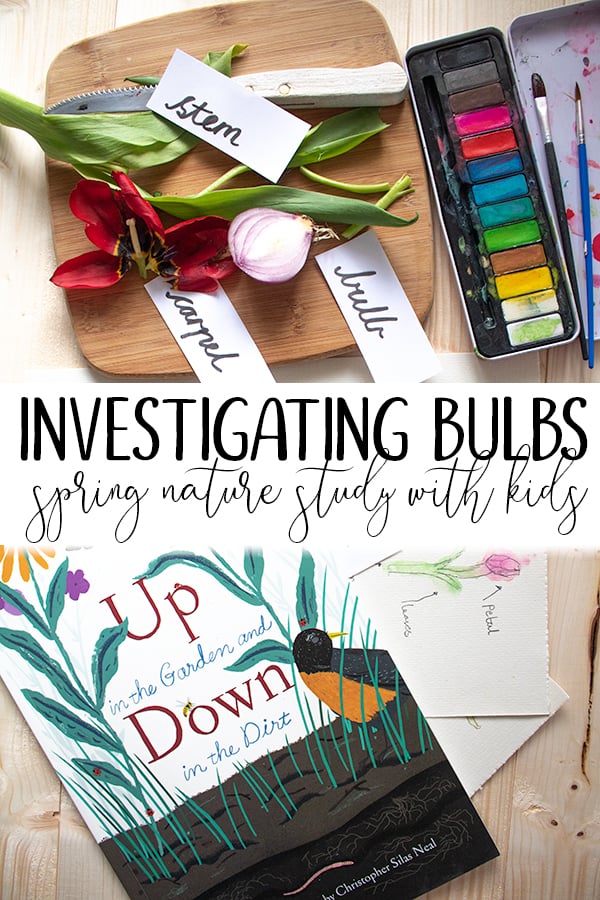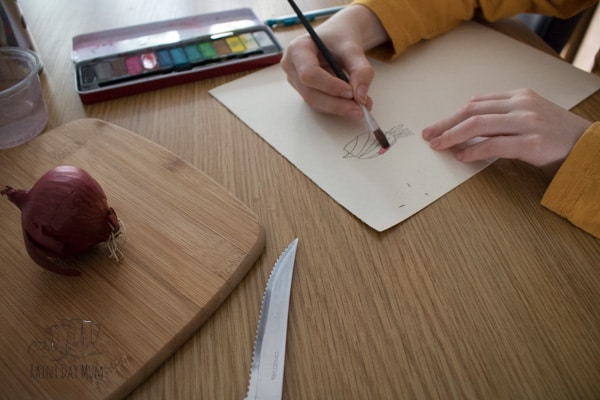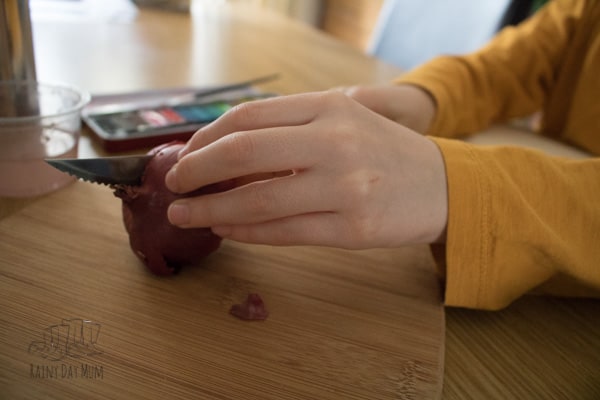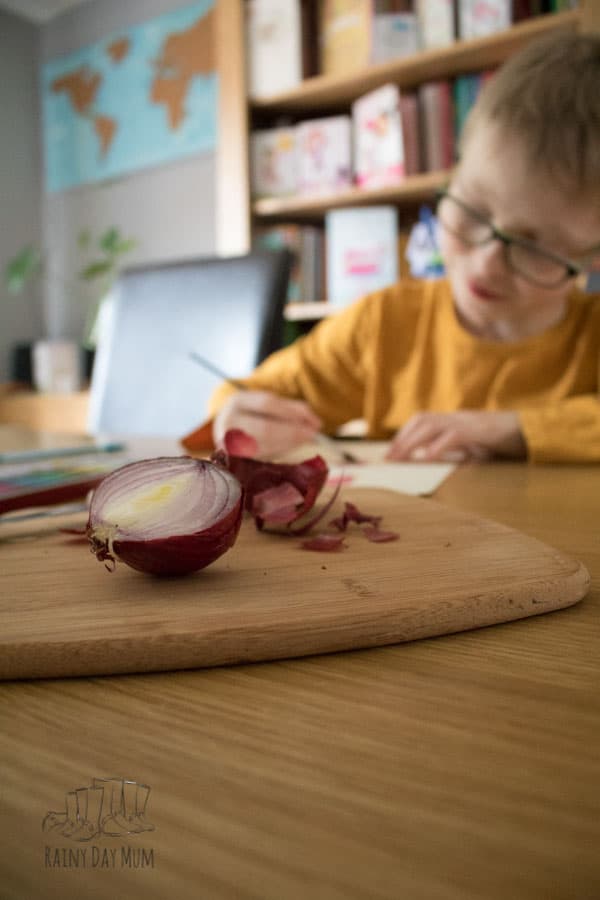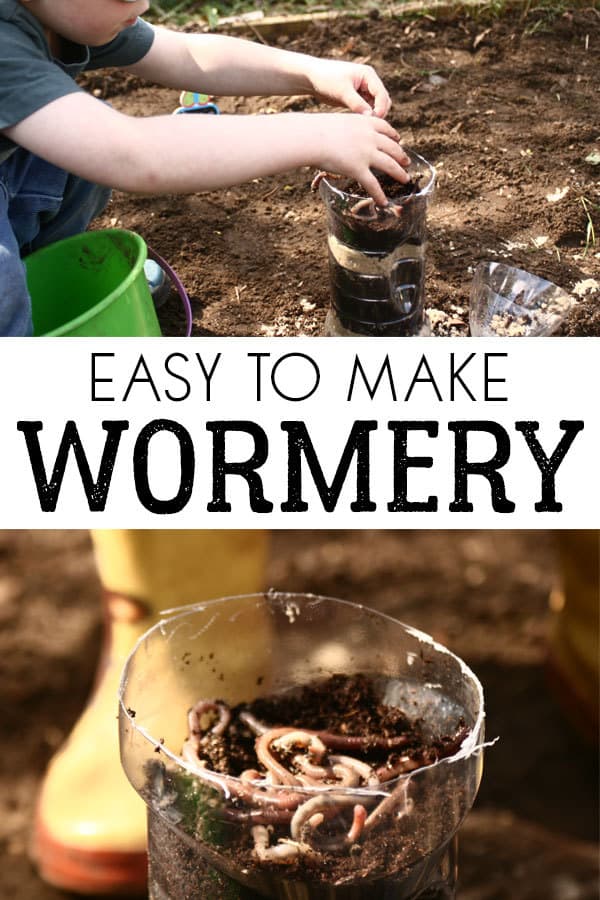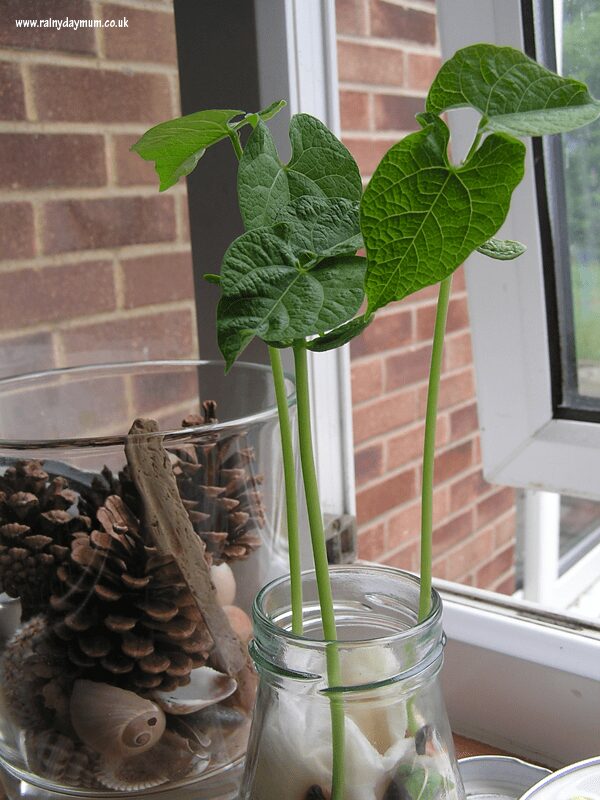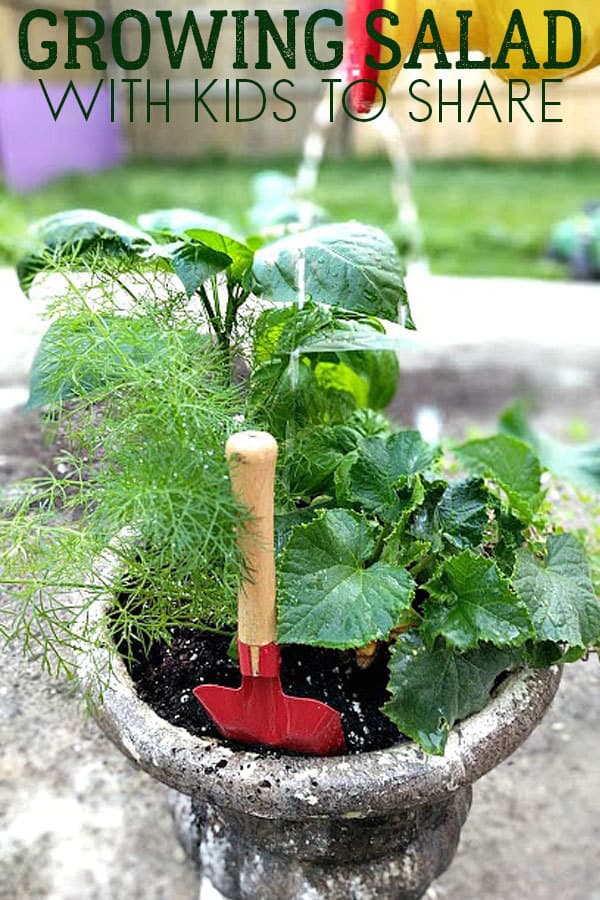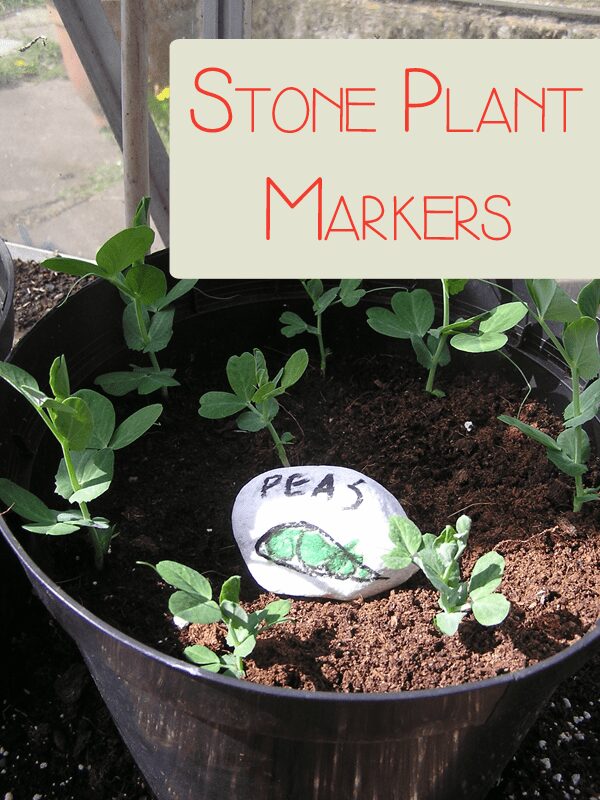Spring Bulbs Nature Study with Kids
With your garden filled with spring flowers most of which have grown from bulbs, it’s a fantastic time to look at these and the garden as it awakens in spring a little bit closer. Following on from our Spring Art with Toddlers and Preschoolers this is an activity that builds on similar skills but introduced more science. Pick which aspects you want to teach your kids and focus on exploring bulbs and the flowers they produce with this Spring Bulb Nature Study activity.
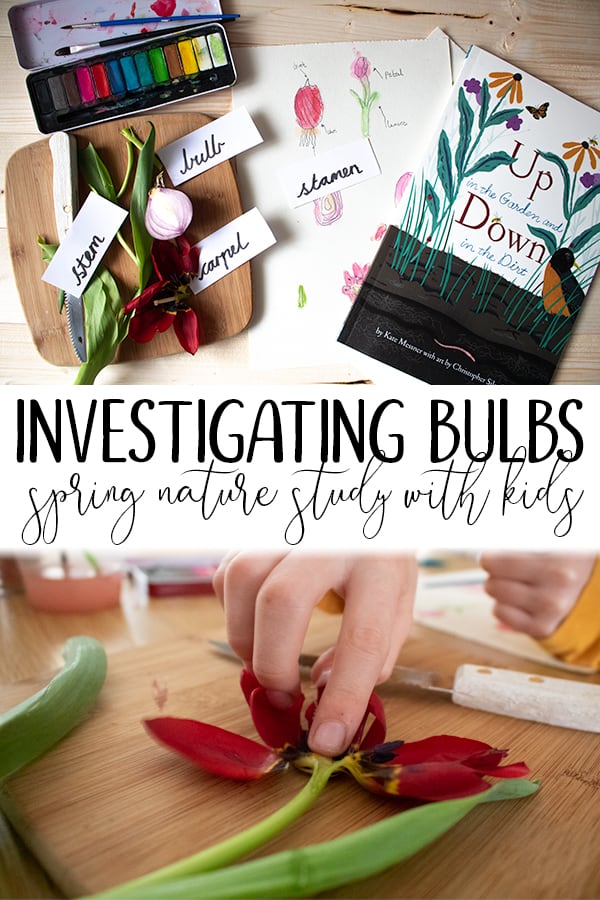
Spring Bulb Nature Study
We have included links to the books and materials we used for this nature activity with the kids. If you purchase via our links we may earn a small commission.
Before doing this activity as a family we picked up the book Up in the Garden and Down in the Dirt by Kate Messner and read through it.
I only recently discovered the author and love the books which focus on nature and exploring what happens in a habitat. This one focuses on a year in the garden with each alternative page spreads focusing on above and below the ground. It introduces what animals appear throughout the seasons and although there is an American focus to the animals (not many Skunks in the UK!) we were able to think of animals that would take their place in the ecosystems at home.
Exploring Bulbs – Dissection and Nature Journal Drawings
If you have a budding botanist or biologist in your home as we do then one of the biggest skills I can pass on is the need to make observational drawings. I hadn’t realised how much art was involved in following a zoology career until I started university. Every dissection had to be recorded with accurate drawings labelled and observational notes made.
I was very glad that growing up my parents had encouraged us to conduct nature studies and now it’s something that I do with my own kids.
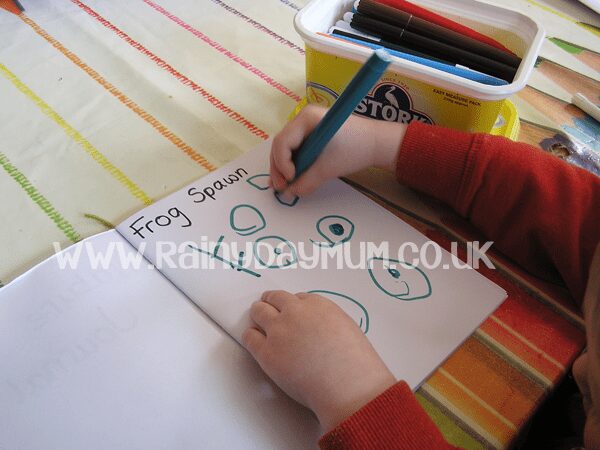
From when they preschoolers we did nature journals and always had drawing supplies in our nature kit.
This nature study includes a dissection because not everything that goes on within a plant can be seen from the outside. Because many bulbs have toxic sap on them you can either wear plastic gloves or like we have replace your flowering bulb with an onion as it’s safe to handle and your child to cut.
Materials Needed for Studying Bulbs with Children
Bulb – Onion or other (if you use another make sure that as you touch the bulb you are wearing protective gloves)
Cutting board
Sharp knife
Flower from a bulb we used a tulip
How to Set up your Bulb Nature Journal Study with you Kids
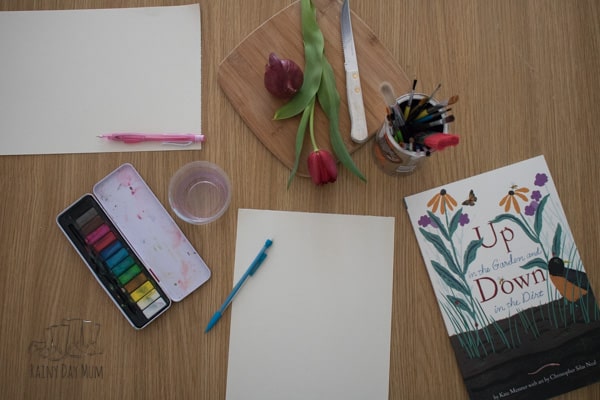
- Start off by setting up your area for dissecting your bulb and recording the observations.
- Make drawings of the bulb.

- As your children draw, point out the roots, where the shoot would come from. You may want to explain the functions of the roots and look in more detail at them.
- Next, draw the flower.

- After both have been recorded.
- Cut up the bulb in half.

- Draw the half a bulb.

- Next, chop off the flower and cut along and open up.

- Again explore what the functions of the different parts of the flower are.

- Then draw this as well.
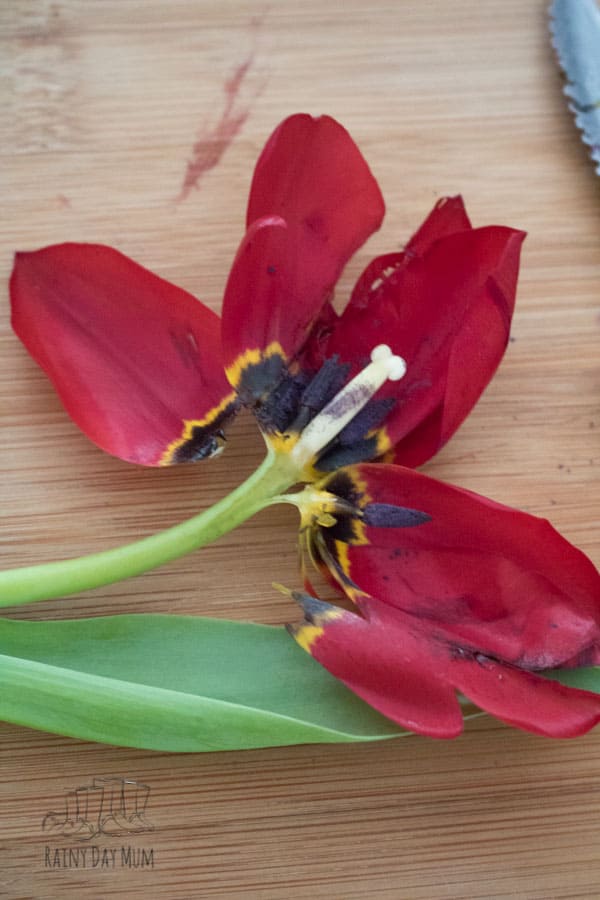
My kids wanted to look at the stem and see the “water” inside as they knew from our celery experiment that the water was drawn up so they expected there to be visible water inside the stems.
They were quite surprised that it was empty and after looking with a magnifying glass we could see some of the vessels that draw the water up from the roots.
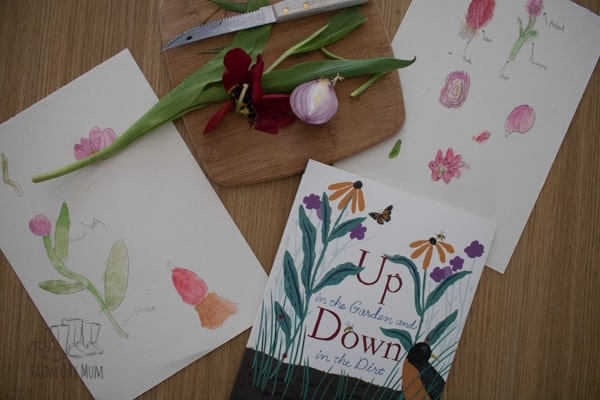
More Activities To Do Inspired by Up in the Garden Down in the Dirt
If you read this book as part of your nature study with your kids then we have a few more ideas that would work as well as our Bulb Dissection and Nature Journal here.
Looking at what happens under the soil can be difficult but we have a simple to make Wormery that let your children observe what happens under the soil and the function of the humble earthworm.
Grow beans in a jar and look at roots and shoots in more detail this is an ideal experiment to do with kids to see what happens with seeds under the ground when they start to grow.
It doesn’t matter if you have a lot or a little space you can grow a salad with your kids easily and then enjoy the eating of the salad leaves as well.
If you are growing with your kids this year then why not make some stone markers for your plants they are easy to make and we still have our stones 6 years later and reuse them each year to mark our vegetables out.

Getting down in the dirt you can find a lot about the type of environment it is. Have a look at our Soil Science for Kids where we walk you through how to explore soils with your kids a great activity to do whilst you read Up in the Garden Down in the Dirt by Kate Messner.
Storybook Science

If you are looking for more ways to connect books with science then check out Storybook Science. This is our 4th year of joining in with this fun series run by Trisha over on Inspiration Laboratories.
Each week for 4 weeks there is a science topic focus and websites and blogs run by teachers and parents around the world join in sharing a book and a science activity inspired by the book.
See these other plant science activities from the Storybook Science Series
- Garden Preschool Science exploring Seeds with The Tiny Seed over on from Engineer to Stay at Home Mom
- Create a model plant cell with this how to from Science Sparks
- Look at how seeds germinate with this simple activity from Inspiration Laboratories
